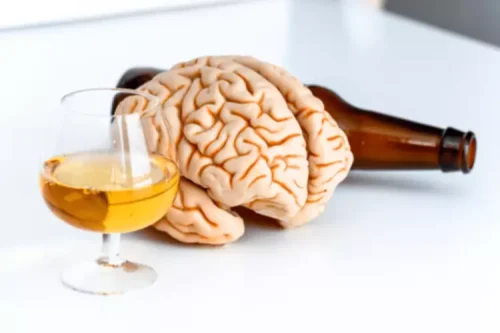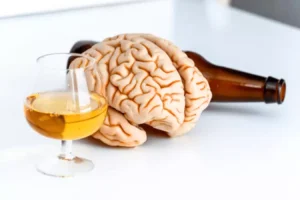What is Alcoholic Neuropathy? Causes, symptoms, & treatment

The most effective strategy to prevent further neurologic deterioration is for the patient to reduce or discontinue alcohol Substance abuse abuse. Under the guidance of a healthcare professional, patients may integrate pain management, healthy diet, physical therapy and exercise into their treatment plan. Additionally, engaging in stress reduction techniques such as meditation or yoga may help improve overall health and wellness. Ensuring a well-balanced diet and taking vitamin supplements as directed by a healthcare professional can give the body the resources it needs to repair damaged nerves to some extent.
Treatment Options for Alcohol-Related Neuropathy

With the help of experienced professionals and a supportive community, you can begin a sober and healthy life. The road to https://ecosoberhouse.com/ recovering from alcoholic neuropathy may be difficult, but with the right support and resources, it is possible to regain control over one’s life and health. In the United States, approximately 25 to 66 percent of chronic alcohol users experience neuropathy.2 The majority of these alcohol users are working middle-class men. Excessive consumption of alcohol causes alcohol-related neurologic disease. When you consume alcohol, it’s absorbed into your bloodstream from the stomach and the small intestine.
Treatment for alcoholic neuropathy
- It’s key to find a treatment center equipped to address co-occurring disorders, manage symptoms effectively, and provide tailored care for alcohol use disorder, ensuring a comprehensive and supportive approach to your well-being.
- This is a severe and short-term neurologic disease that can be life threatening.
- People who drink heavily on a regular basis are at risk of developing this condition.
- In one clinical study, aimed at studying distinct clinicopathologic features of alcoholic neuropathy, 64 patients were assessed.
- Accumulating evidence suggests a pivotal role for metabotropic glutamate receptors (mGluRs) in nociceptive processing, inflammatory pain and hyperalgesia 74, 75.
- Cerebellar degeneration caused by alcohol occurs when neurons in the cerebellum deteriorate and die.
Patients who abuse alcohol tend to consume fewer calories and have poor absorption of nutrients in the gastrointestinal tract. There are also direct toxic effects of alcohol and its metabolites on neurons, affecting cellular cytoskeletons and demyelination of neurons. Among patients with chronic alcohol use disorder, neuropathy is the most common harmful sequelae. It is estimated that in the United States, 25% to 66% of chronic alcohol users experience some form of neuropathy; however, the true incidence in the general population is unknown.
What is alcoholic neuropathy muscle weakness?
Thus, it is quite possible that chronic alcohol consumption is responsible for inducing neuropathy by activation of the caspase cascade and may be an important target for the treatment of alcoholic neuropathy. The sooner an individual seeks medical support, the greater the likelihood of regaining as much nerve function as possible. Treatment may include medications for pain management, physical therapy to improve strength and mobility, and counseling to address the underlying issues related to alcoholic neuropathy symptoms alcohol addiction. Alcoholism also often results in other medical conditions, such as liver disease and diabetes. These conditions can further increase the risk of nerve damage and intensify the symptoms of alcoholic neuropathy.
- However, severe alcohol-related neuropathy may cause permanent nerve damage.
- The Recovery Village Columbus offers comprehensive, evidence-based treatment programs to meet your needs and facilitate your healing journey.
- Alcohol abuse also has important effects that relate to human nutrition.
- Research suggests you can recover from some or all of the nerve damage caused by alcohol-related neuropathy.

Most patients with alcohol neuropathy initially present with symmetrical polyneuropathies in the lower distal extremities; however, heavier abuse can progress to distal upper extremity symptoms. The most common findings are sensory-related and vary, including pain, numbness, and paresthesias. Pain seems consistent in the literature as 1 of the most common complaints and can be the first clinical indication of the disease. Keeping this disease process high on the differential with the right history is essential. Progression of the disease leads to symmetrical ascending motor and sensory deficits.

Benfotiamine for the treatment of alcohol related peripheral neuropathy
So, the nerve damage of alcoholic neuropathy is generally permanent and likely to worsen if the person does not stop drinking. Alcoholic neuropathy is caused by nutritional deficiency, as well as toxins that build up in the body. Alcohol decreases the absorption of nutrients such as magnesium, selenium, and vitamins B1 and B2, causing significant deficits that affect many areas of the body, including the nerves. If the sensation is decreased enough, you may feel actual numbness after drinking alcohol. Speak with a healthcare professional if you experience symptoms of alcohol-related neuropathy or are struggling to stop drinking.
- These abnormal proteins influence other cell populations especially the hepatocytes where the damage to hepatic mitochondria results in hepatic cirrhosis with reduction of energetic substrates in the liver.
- Activator and effector caspases, defining components of programmed cell death signalling pathways, also contribute to pain-related behaviour in animals with small fibre peripheral neuropathies.
Plus, we’re always introducing new features to optimize your in-app experience. We recently launched our in-app chatbot, Melody, powered by the world’s most powerful AI technology. Melody is here to help as you adjust to a life with less (or no) alcohol. To begin with, a person may feel that something is off, unusual, or painful in their senses, movement, or balance.

Alcoholic Neuropathy Treatment
Fortunately, after receiving a diagnosis, people with alcoholic neuropathy can make healthy changes to minimize symptoms and receive help for chronic alcohol use. However, it is known to be directly related to heavy and long-term alcohol consumption. Overconsumption of alcohol may directly harm and hinder the nerves’ ability to communicate information from one body area to another. Antiepileptic drugs, such as the gamma aminobutyric acid (GABA) analogue (gabapentin), have proven helpful in some cases of neuropathic pain.





